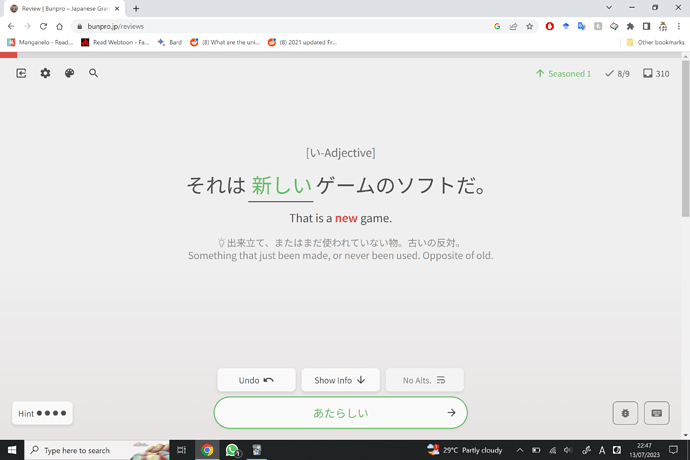If I had to guess it either means “software game” or download games. If you search it you get a link to すべてのゲームソフト | My Nintendo Store(マイニンテンドーストア)
but they do not add の just ゲームソフト
This is also how amazon calls it
Amazon.co.jp: ゲームソフト: ゲーム
and finally this is how jisho calls it, but once again they don’t include a の particle
Jisho.org: Japanese Dictionary
it definitely means software.
the translation just cuts it because it sounds awkward in english.
a literal translation would be “that is a/the new (video)game software”
but like i said, a bit awk.
Yeah Japanese often has weird not quite english words lmao, like パソコン computer メモ note アプリ app(lication?) I always laugh when I find new ones
well for those examples I can at least see where theyre getting the word from
パソコン perso(nal) conm(puter)
メモ memo (pretty much a note)
アプリ appli(cation) just as you said
But some of them Im just …whaat?? makes me question if theyre even 和製英語 to begin with. totally drawing a blank on some examples rn, but I always have trouble remembering them so that tracks lmaoo
Like others said its definitley software, but the の makes me read it as a dlc update of sorts?
Oh i remeber a better one now- ストーブ heater??
stove! stove heater? those were a thing right? stoves are hot so my brain can still justify that one  I definitley think 和製英語 can be really fun to “de-code” in a way
I definitley think 和製英語 can be really fun to “de-code” in a way
This is a good way of thinking about it. Often in Japanese, or any language, there are word combinations that don’t feel quite right when said in other languages, and that’s perfectly okay, because it’s not our language. Usually what I try to do is think of a time where I ‘might’ say something even remotely close in my own language. Maybe:
‘That’s the cartridge/CD for that new game’.
I am not sure why exactly I would specify it, but there would certainly be situations, just like in English. You don’t need to say ソフト all the time when discussing a game in Japanese. There is just some unseen context here as to why the speaker did, and that’s our job as the reader to imagine sometimes. Perhaps your friend saw it sitting on top of your TV and was like ‘What’s that CD?’, ‘Oh, it’s that new game’s CD’.
Speaking of uh, interesting “English” words, I recently encountered the word ホーム which is apparently “home”, but for some baffling reason it also refers to a railway platform! And sure enough, if you google the term, you get back lots of railway platform images.
Surely there’s something, some backstory, that I’m missing here!
As I learned recently: バイキング is Japanese for buffet. You can look up the backstory on wanikani if you don’t know it. I found it interesting
Oh yeah that was confusing haha
You have to keep in mind that Japanese people shorten words (actually, we all do in our respective languages), so this is no exception. The original katakana is プラットフォーム or プラットホーム “platform”. It’s just that the short version is easier to pronounce.
That said, there are some katakana words that come from English that I’m like, “nope, that’s not what that means”. And some where the pronunciation is not even close. Honestly, in those cases, I rather say the Japanese word, lol.
Well, that makes sense in this case.
Maybe with some not-English words, it’s just better to not think too hard about how they were formed.
Something I don’t think anyone else mentioned yet, but really helped me a lot, is to learn how to break the sentence apart into it’s simplest parts, and almost always to work from the end first.
So when you start with それは新しいゲームのソフトだ。just look at the end and see だ。OK so that means we are saying “X is” or “X is Y”.
Then we move backwards one step and we get ソフトだ。
OK so this sentence is saying “X is ソフト”.
Keep going backwards one step, ゲームのソフトだ。and that’s when we realize that game is not really the main noun, it’s just modifying software. So ソフト is the real noun here not ゲーム.

